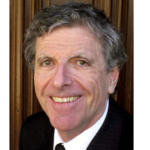Philip K. Howard argues that they are, and should be done away with.
“All Government employees should realize that the process of collective bargaining, as usually understood, cannot be transplanted into the public service. It has its distinct and insurmountable limitations when applied to public personnel management.”
The above caveat about government unions – usually known by the kinder and gentler “public employee unions” (PEUs) – was not issued by Ron DeSantis or Donald Trump. The statement was made by progressive icon Franklin Delano Roosevelt.
Additionally, George Meany, president of the AFL-CIO for 24 years, once stated, “It is impossible to bargain collectively with the government.” Both men understood that the very nature of government makes it wrong for its leaders to enter into negotiations with any union. When government unions negotiate, they often sit across the table from people they helped put in office with generous campaign contributions. And when these unions go on strike, they walk out on the taxpayer.
PEU leaders fully understand their advantage. Victor Gotbaum, president of District Council 37 of the American Federation of State, County and Municipal Employees (AFSCME) in New York City, bragged in 1975, “We have the ability, in a sense, to elect our own boss.” Los Angeles teacher union honcho Alex Caputo-Pearl clearly agreed, writing on his union’s blog in 2019, “We have a unique power – we elect our bosses. It would be difficult to think of workers anywhere else who elect their bosses. We do. We must take advantage of it.”
Clearly, the PEUs are by their nature, political. In fact, the National Education Association spent twice as much on politics in 2021 as it did on representing its members – $66 million compared to $32 million, according to the union’s LM2, a report that must be filed with the federal Department of Labor. Additionally, Open Secrets reports that over 99% of the union’s political spending went to Democrats. This is especially galling because Fox News, citing OpenSecrets.org, reports that donations from the two national teachers unions have long been on the rise and grew from $4.3 million in 2004 to more than $32 million in 2016. (It’s worth noting that the teachers union spending doesn’t represent their rank and file politically. A 2017 EdWeek poll found that 43% of teachers described themselves as politically moderate, 29% as liberal, and 27% as conservative.)
And now a new book suggests we take an unprecedented step to change this egregious scenario. In Not Accountable: Rethinking the Constitutionality of Public Employee Unions, Philip K. Howard, who has been described as a “radical centrist,” and is the author of 1995’s The Death of Common Sense, a New York Times bestseller, argues that teachers unions and, in fact, all public employee unions, should be ruled unconstitutional because they have thoroughly undermined the country’s democratic form of government.
In City Journal, Steven Malanga has written a spot-on review of the book in which he deftly sums up the problem created by the formation of PEUs: “from labor leaders threatening to un-elect recalcitrant politicians, to public-employee contracts that protect bad teachers and cops from getting fired, to policy decisions made to create union jobs rather than produce good government, to the emergence of government unions as the biggest advocates for tax increases and the biggest opponents of restraining budgets, to the absolute financial mess many local governments, and taxpayers, face with public pensions.”
It doesn’t take Howard much time to come to his conclusion in this brief read. He describes our current situation as an “unconstitutional mess” and maintains that the courts should intervene. At the federal level, he argues, “the legislation that protects public-employee unions violates Article II of the Constitution, which proclaims that ‘the executive power shall be vested in a President.’”
Howard explains, “More federal employees die on the job than are terminated for poor performance. Regular stories emerge of employees who cannot be terminated despite outrageous behavior—such as the EPA employee who spent the day surfing porn sites.”
He describes what makes public and private unions very different. “Their incentives are different, because public workers are not at risk of overreach. If a private union asks for inefficient work rules, the company will go out of business or move to another place and they will lose their jobs. But government can’t move.”
Here, he makes a crucial distinction: “Political organizing by public sector unions is assumed to be lawful because the First Amendment allows everyone else to organize politically. But public employees, unlike all outside interest groups, have an ethical responsibility to serve the public, not negotiate against it. Moreover, union political organization is aimed at influencing the political leaders with whom unions are bargaining. Public employees use political power to skew and sometimes corrupt constitutional government, to their own benefit and almost always to the harm of the public.”
Ultimately, Howard concludes that organized political activity by public employee unions should be ruled unconstitutional. “Public employees individually will still be free to engage in political activity and expression, but not to mobilize the resources of, literally, millions of public employees against the public good.”
He clarifies that public employees should be entitled to represent their personal interests, for example, in fair compensation. “A public employee should be allowed, as this ethical guidance in Massachusetts states, to ‘represent his own personal interests … on the same terms and conditions that would apply to other similarly situated members of the public.’”
Howard sums things up as follows:
-Instead of promoting excellence, public unions prevent accountability of abusive cops, inept teachers, and ineffective public employees.
-Union work rules are designed for inefficiency and avoiding merit—for example, padding of job crews with featherbedding and make-work requirements, prohibitions on pitching in, and seniority over quality.
-Union pension rules are written to be gamed against the public interest—for example, spiking of overtime to enable pensioners to inflate their pensions.
-Massive political donations and support are distributed so that elected leaders answer to unions, not voters.
You know you have stuck the right nerve when Randi Weingarten goes after you. In her recent pack of lies, Kids Do Better In Schools With Teachers Unions, she accuses Howard of deploying “a barrage of empty right-wing rhetoric to claim unions use ‘brutal’ tactics to achieve their ‘demands’ and that they ‘enforce a culture of entitlement’ in which ‘employees are ostracized if they strive to do more than a bare minimum.’ Tell that to teachers as they arrive at school early to give students extra help or head to their second job after the school day ends.”
No, Randi, tell that to FDR and George Meany.
Clearly, Howard is on to something. As I have long contended, teachers unions and other government unions, need to be outlawed. My only hope is that there are enough honest and committed people in power to make this happen.





